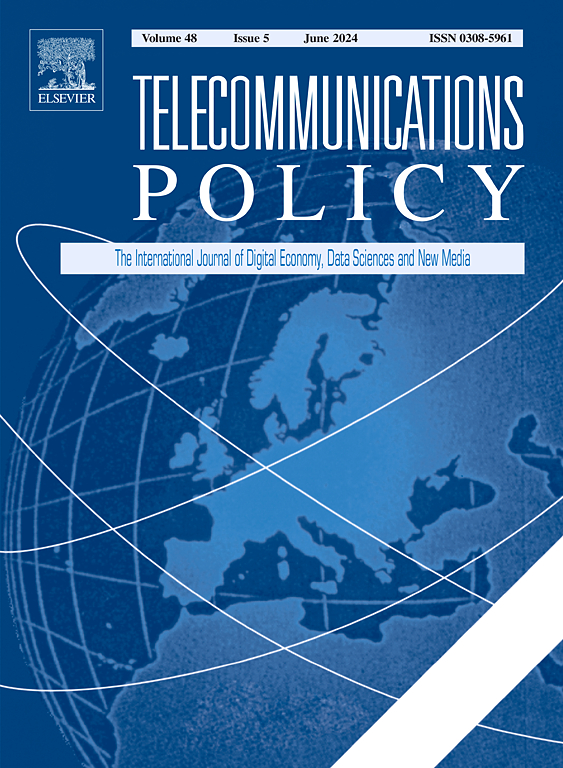Assessing the economy-wide impacts of digital transformation in the Korean economy: A social accounting matrix multiplier approach
IF 6.4
2区 管理学
Q1 COMMUNICATION
引用次数: 0
Abstract
This study assesses the economic impact of digital transformation (DT) in Korea by utilizing a Social Accounting Matrix to explore interconnections across various datasets. Through a social accounting matrix multiplier analysis, this study empirically identifies the production inducement, income inducement, and income distribution effects driven by DT-related infrastructure investments. We analyze how DT influences production, income, and income distribution through infrastructure investments, focusing on its effects on the labor market and household income. The findings indicate that DT accelerates economic growth, favoring digital capital-intensive industries and high-skilled labor, potentially increasing employment polarization and exacerbating income inequality. This study highlights the need for dual approach as to enhance national competitiveness and inclusiveness in an economy driven by DT technologies. This approach involves two key components that work synergistically to maximize the benefits of DT while addressing its potential challenges, suggesting that industrial and innovation policies should be reconstructed to align with the demands of a DT-driven economy.
评估韩国经济数字化转型对整个经济的影响:社会核算矩阵乘数法
本研究利用社会核算矩阵探索各种数据集之间的相互联系,从而评估韩国数字化转型(DT)的经济影响。通过社会核算矩阵乘数分析,本研究实证确定了与 DT 相关的基础设施投资对生产、收入和收入分配的影响。我们分析了 DT 如何通过基础设施投资影响生产、收入和收入分配,重点关注其对劳动力市场和家庭收入的影响。研究结果表明,数字技术加速了经济增长,有利于数字资本密集型产业和高技能劳动力,有可能加剧就业两极分化和收入不平等。这项研究强调,在以 DT 技术为驱动力的经济中,需要采取双重方法来提高国家竞争力和包容性。这种方法包括两个关键组成部分,它们协同作用,在应对潜在挑战的同时,最大限度地发挥 DT 的效益,这表明应重新构建产业和创新政策,以适应 DT 驱动型经济的需求。
本文章由计算机程序翻译,如有差异,请以英文原文为准。
求助全文
约1分钟内获得全文
求助全文
来源期刊

Telecommunications Policy
工程技术-电信学
CiteScore
10.80
自引率
12.50%
发文量
122
审稿时长
38 days
期刊介绍:
Telecommunications Policy is concerned with the impact of digitalization in the economy and society. The journal is multidisciplinary, encompassing conceptual, theoretical and empirical studies, quantitative as well as qualitative. The scope includes policy, regulation, and governance; big data, artificial intelligence and data science; new and traditional sectors encompassing new media and the platform economy; management, entrepreneurship, innovation and use. Contributions may explore these topics at national, regional and international levels, including issues confronting both developed and developing countries. The papers accepted by the journal meet high standards of analytical rigor and policy relevance.
 求助内容:
求助内容: 应助结果提醒方式:
应助结果提醒方式:


